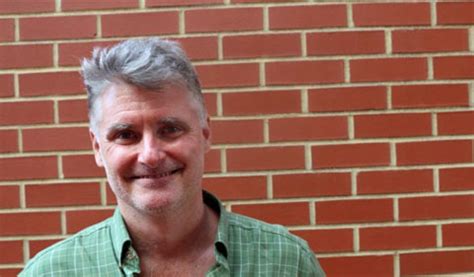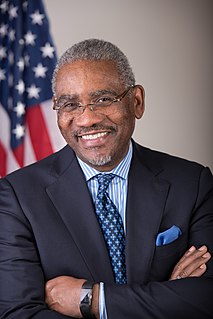A Quote by Neil deGrasse Tyson
I would teach how science works as much as I would teach what science knows. I would assert (given that essentially, everyone will learn to read) that science literacy is the most important kind of literacy they can take into the 21st century. I would undervalue grades based on knowing things and find ways to reward curiosity. In the end, it's the people who are curious who change the world.
Quote Topics
Assert
Based
Century
Change
Change The World
Curiosity
Curious
End
Essentially
Everyone
Find
Given
Grades
How
Important
In The End
Kind
Knowing
Knowing Things
Knows
Learn
Literacy
Most
Much
People
Read
Reward
Science
Science Literacy
Take
Teach
The Most Important
Things
Undervalue
Ways
Will
Works
World
Would
Related Quotes
It is time to create new social science departments that reflect the breadth and complexity of the problems we face as well as the novelty of 21st-century science. These would include departments of biosocial science, network science, neuroeconomics, behavioral genetics and computational social science.
I would teach the world that science is the best way to understand the world and that for any set of observations, there is only one correct explanation. Also, science is value-free, as it explains the world as it is. Ethical issues arise only when science is applied to technology - from medicine to industry.
When NASA makes discoveries they are profound and they make headlines, everyone takes notice. It drives dialogue and, today, it would drive the blogosphere. It would drive the projects the kids do in school. So you wouldn't even need programs to try and stimulate curiosity. You wouldn't need programs to try to convince people that science literacy is good. Because they're going to want to participate on this epic adventure that we call space exploration.
You can't train kids in a world where adults have no concept of what science literacy is. The adults are gonna squash the creativity that would manifest itself, because they're clueless about what it and why it matters. But science can always benefit from the more brains there are that are thinking about it - but that's true for any field.
We are living in a society that is totally dependent on science and high technology, and yet most of us are effectively alienated and excluded from its workings, from the values of science, the methods of science, and the language of science. A good place to start would be for as many of us as possible to begin to understand the decision-making and the basis for those decisions, and to act independently and not be manipulated into thinking one thing or another, but to learn how to think. That's what science does.
At the 1894 ALA conference it was fairly well agreed that the primary goal of the public library must be to teach good citizenship. Libraries recognized that such "Americanization" could be achieved through literacy. Thus, teaching immigrants to read was not just a benefit in and of itself; literacy would also serve the interests of democracy.
Because a fact seems strange to you, you conclude that it is not one. ... All science, however, commences by being strange. Science is successive. It goes from one wonder to another. It mounts by a ladder. The science of to-day would seem extravagant to the science of a former time. Ptolemy would believe Newton mad.
Science is like society and trade, in resting at bottom upon a basis of faith. There are some things here, too, that we can not prove, otherwise there would be nothing we can prove. Science is busy with the hither-end of things, not the thither-end. It is a mistake to contrast religion and science in this respect, and to think of religion as taking everything for granted, and science as doing only clean work, and having all the loose ends gathered up and tucked in. We never reach the roots of things in science more than in religion.

































